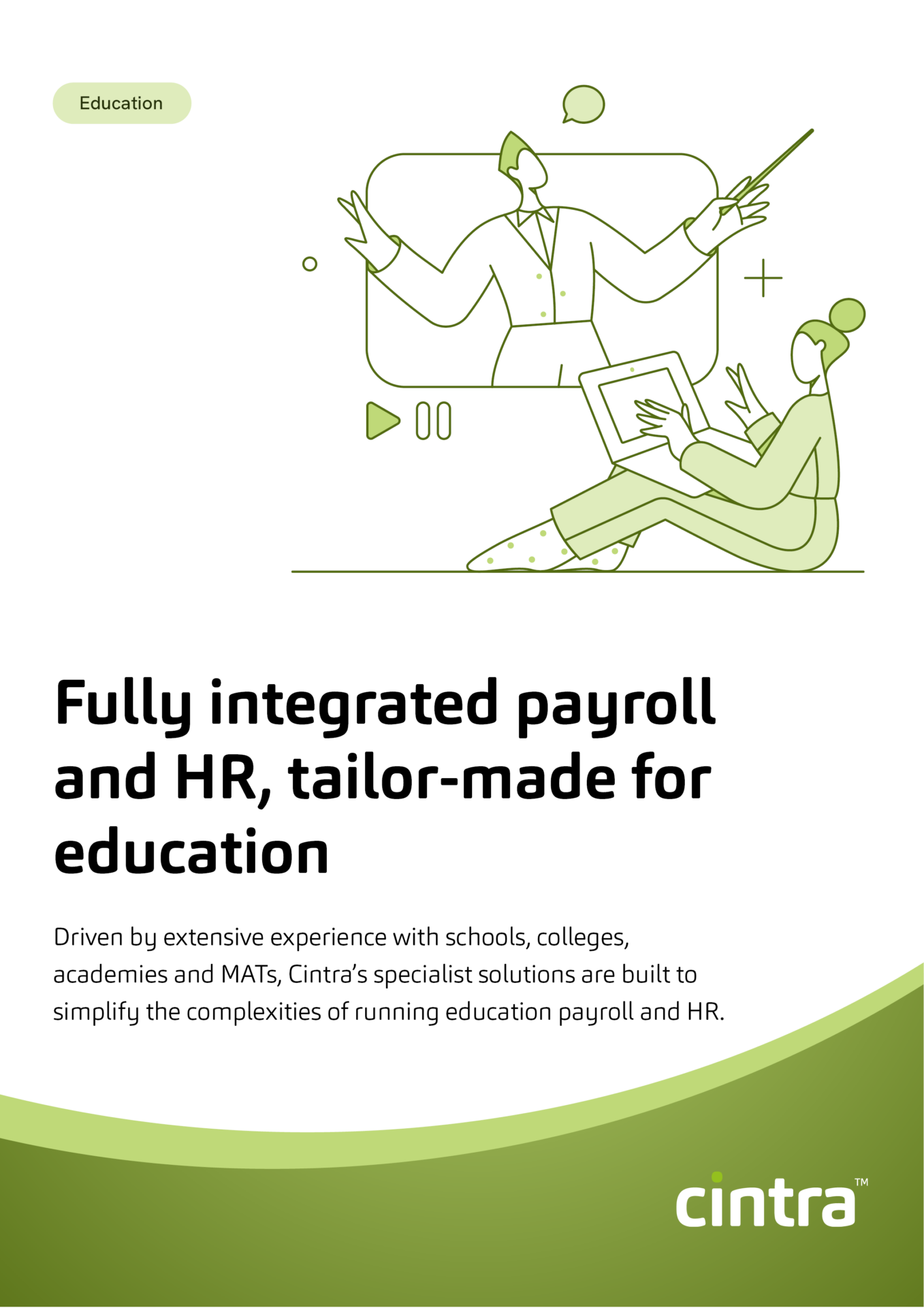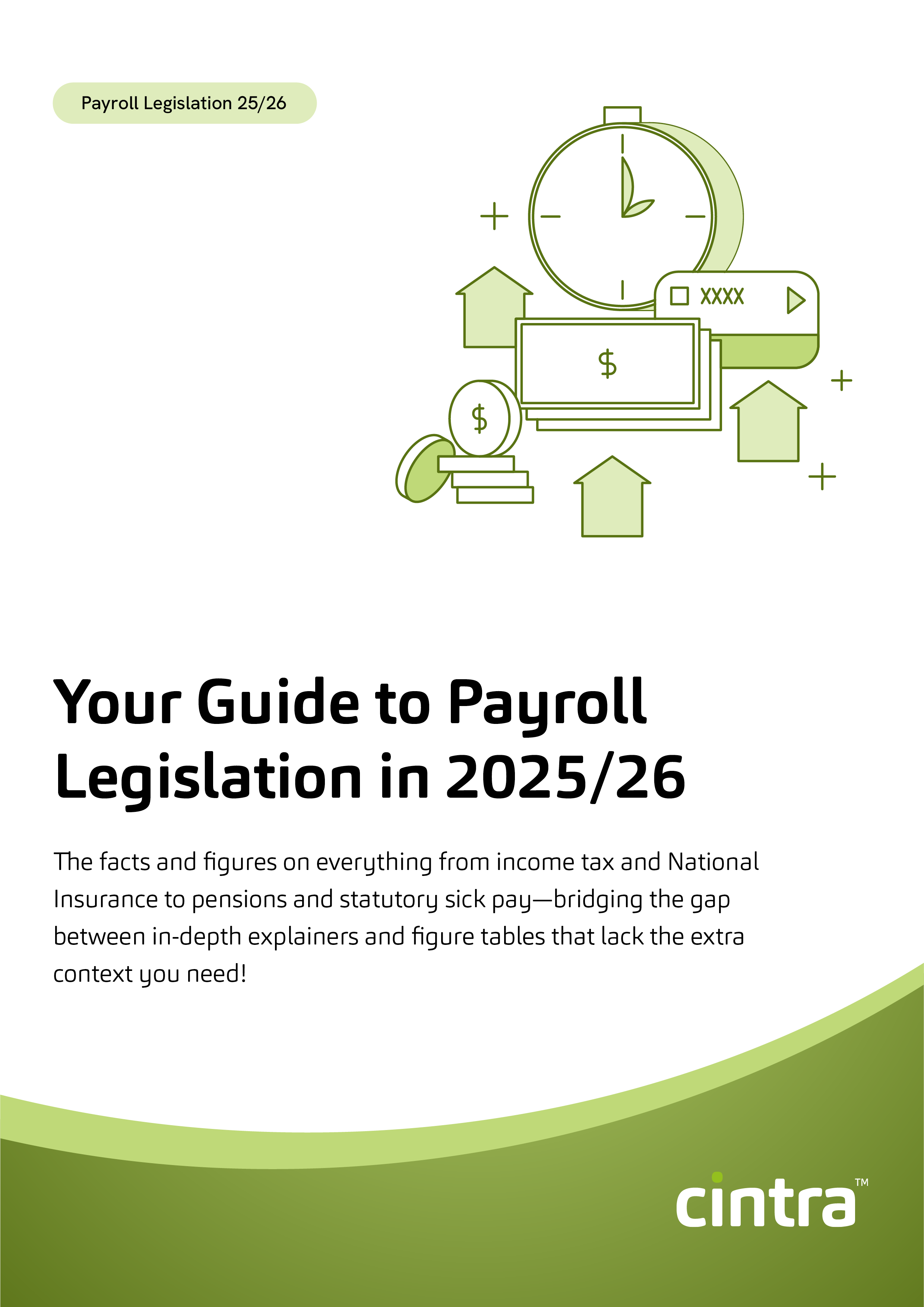In education, your students matter most. There’s no room for poor payroll and HR processes or too much time spent on pay and pension admin.
Managing payroll in education comes with unique challenges due to the sector’s structured framework, specific conditions, and obligations.
This blog will help you better understand the biggest payroll challenges in schools, how you can improve your payroll management for the education sector and whether you should outsource your school’s payroll.
What does payroll management for education involve?
Payroll management in the education sector involves the processing of payroll and pensions for staff working in a school or multi-academy trust. The payroll data is typically exported from the school’s HR software and is then processed in-house by a dedicated payroll team or is collated and sent to an external third-party payroll provider, otherwise known as an outsourced payroll service.
Ater compiling and formatting the necessary data, the payroll team proceeds to execute payments to staff on the predetermined date. Additionally, part of their responsibilities involves generating reports based on the processed data to ensure compliance. This ensures that the payroll remains consistently accurate and reliable, aligning with regulatory standards.
The biggest payroll challenges in schools, colleges and academies
Payroll challenges in schools, colleges, academies, and multi-academy trusts often arise from the unique intricacies of the education sector, including factors such as:
- Teacher’s pensions
- Teachers pay scales
- Pay for temporary/cover teachers
- Staff pensions
- Maternity/paternity leave
More general challenges in payroll management extend to a lack of consistent and personalised support, leading to frequent inaccuracies. The education sector faces a specific challenge regarding inflexible payroll dates, given the dynamic nature of changing data.
Additionally, time constraints in managing administrative tasks and staying abreast of the latest legislation pose significant hurdles. This is a reason why many schools opt for outsourcing their payroll management.
Top 3 ways you can improve payroll management in the education sector
Sign-up to webinars, newsletters, and emails on payroll best practice
Staying updated on the latest legislation and industry best practices can be challenging when administrative tasks and meetings consume a significant amount of time.
A practical approach to staying informed without sacrificing valuable time is to enrol in payroll webinars. These sessions typically offer more comprehensive insights compared to emails or newsletters. Webinars not only explain the implications of recent changes but also emphasise their significance and provide guidance on necessary adjustments. Opting for an education-specific webinar is especially beneficial in addressing sector-specific considerations.
Employee training
When managing payroll internally, it’s crucial to ensure that employees remain proficient in their roles. A practical approach to achieving this is by enrolling employees in courses through learning management software. These courses are tailored to the specific sector and aim to actively involve employees in targeted skill development. Additionally, the software allows for the tracking of compliance and development progress, providing a comprehensive tool for monitoring and enhancing employee capabilities.
An additional strategy for investing in your employees involves offering further training on the in-house payroll system and identifying relevant certifications to enhance their qualifications. Supporting their professional development not only fosters a sense of value in the workplace but also ensures that your employees are well-qualified and compliant with industry standards.
Outsourcing payroll to a third-party provider
If handling payroll internally proves impractical for your school or multi-academy trust, opting to outsource payroll to a third-party provider can enhance the dependability and precision of your payroll management.
Outsourcing offers the advantage of leveraging the expertise of industry professionals, and there are specialised education payroll providers dedicated to serving the unique needs of the education sector. This ensures that they can adeptly manage the specific requirements of schools and multi-academy trusts.
Should you outsource, or keep in-house?
For many educational institutions, it’s not always clear whether an in-house payroll system or an outsourced service is the best option.
There are a number of factors to consider when choosing the right payroll management solution for your school, but it’s also important to understand the crucial differences between the two options.
We’ve outlined the pros and cons of each solution to give you a more detailed understanding of the requirements each demand:
Outsourced payroll for the education sector
Pros | Cons |
No need for in-house expertise | Ongoing subscription costs |
No payroll processing burden | Less flexibility on changes and deadlines |
Saves time | Less oversight during payroll processing |
Fewer mistakes |
|
Up to date compliance |
|
In-house payroll for the education sector
Pros | Cons |
Lower long-term costs | In-house expertise required |
Increased oversight during payroll processing | Training requirements |
Deadline flexibility | Legislation development |
Co-ordination between back-office teams | Maintenance costs |
Greater accuracy due to school knowledge |
|
Should you outsource your school’s payroll?
The decision to outsource your school’s payroll hinges on the available resources, including time, money, and personnel. Consideration of long-term goals, such as cost savings, improved accuracy, or enhanced employee well-being, is crucial.
If your school lacks a dedicated payroll team, outsourcing to a third-party provider is advisable, irrespective of its size, be it a small, single-site school or a large multi-academy trust. Outsourcing allows you to navigate the complexities of payroll management efficiently, impacting aspects like employee pensions and pay.
Outsourcing will probably incur higher costs in the long run, so it’s essential to factor this into the school’s budget.
When selecting a provider, prioritising quality over cost is advised, ensuring they specialise in the education sector and understand the unique payroll requirements of schools and multi-academy trusts.
Your evaluation criteria should also include customer reviews, case studies, parallel runs, commendations, and relevant certifications, ensuring reliability and accuracy.
Deliver the best to your educators with Cintra
With over 40 years’ experience delivering specialist payroll for schools, we understand your complexities inside and out. No matter how many spine points, job posts, pensions and working patterns you have, with Cintra, you’ll always stay fully compliant and deliver the right pay to your teams—every time.
Our key services for the education sector
- Automate your processes
Whether you’re running calculations on multiple spine points or producing compliant payslips, Cintra is packed with automation to ease the complexities of your school’s payroll.
- Stay fully compliant
We’re HMRC and GDPR compliant, with statutory rates and all your unique education reporting requirements—like MCR and LGPS reports—included in-platform.
- Improve data accuracy
With a fully integrated system, you’ll always have total data accuracy across all your personnel records through a seamless data sync across HR and payroll.
- Improve employee experience
Take a data-led approach to building engaged, high performing teams with powerful people analytics spanning all your payroll and hr processes.
Streamline education payroll with Cintra’s fully integrated solutions—freeing up your valuable time to focus on education and student growth. Book your personalised demo today.

PAYROLL SERVICES FOR SCHOOLS
Find out more about Cintra's HR and payroll services for the education sector, tailor-made for your schools unique needs.
Download your education brochure


